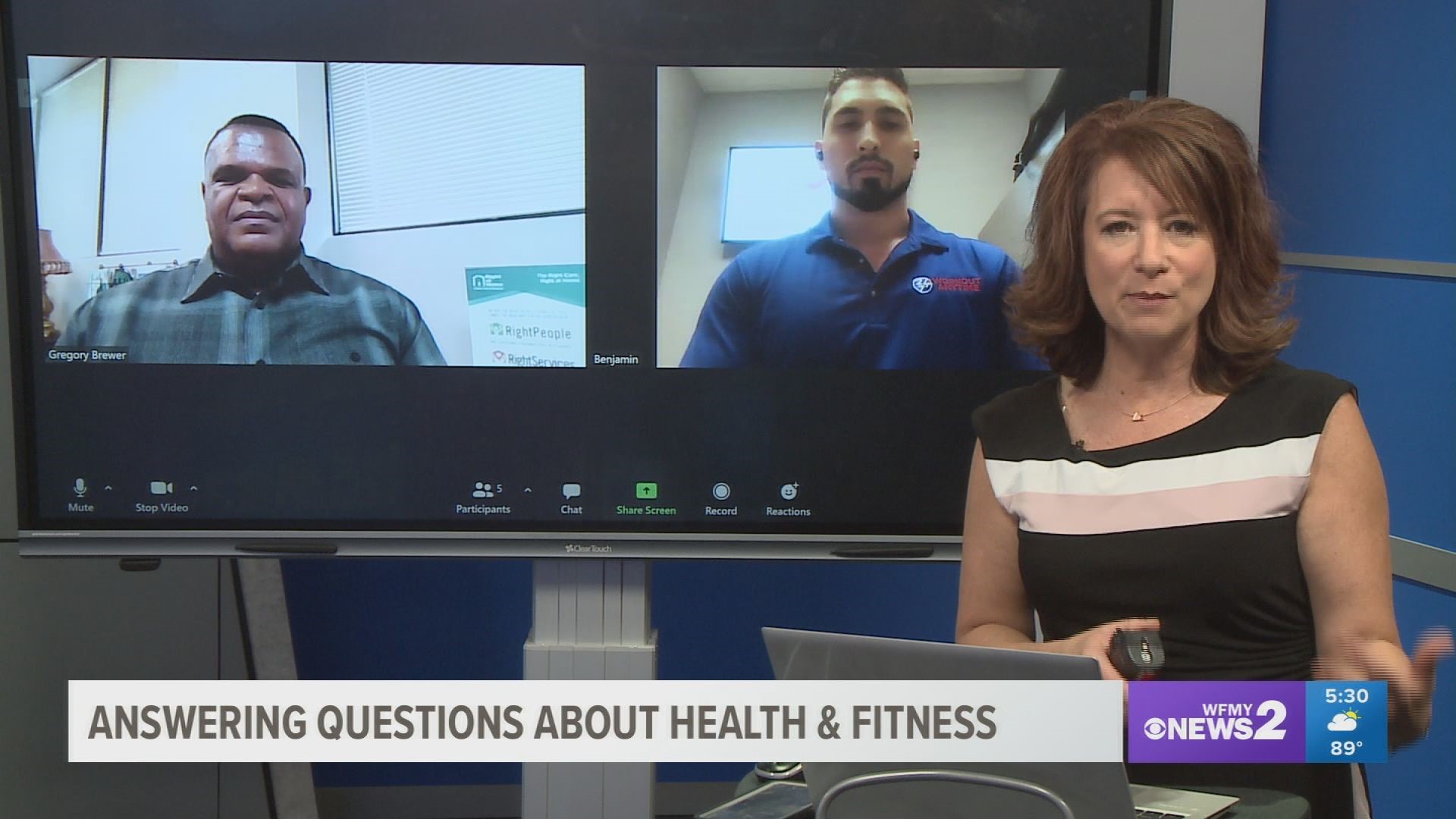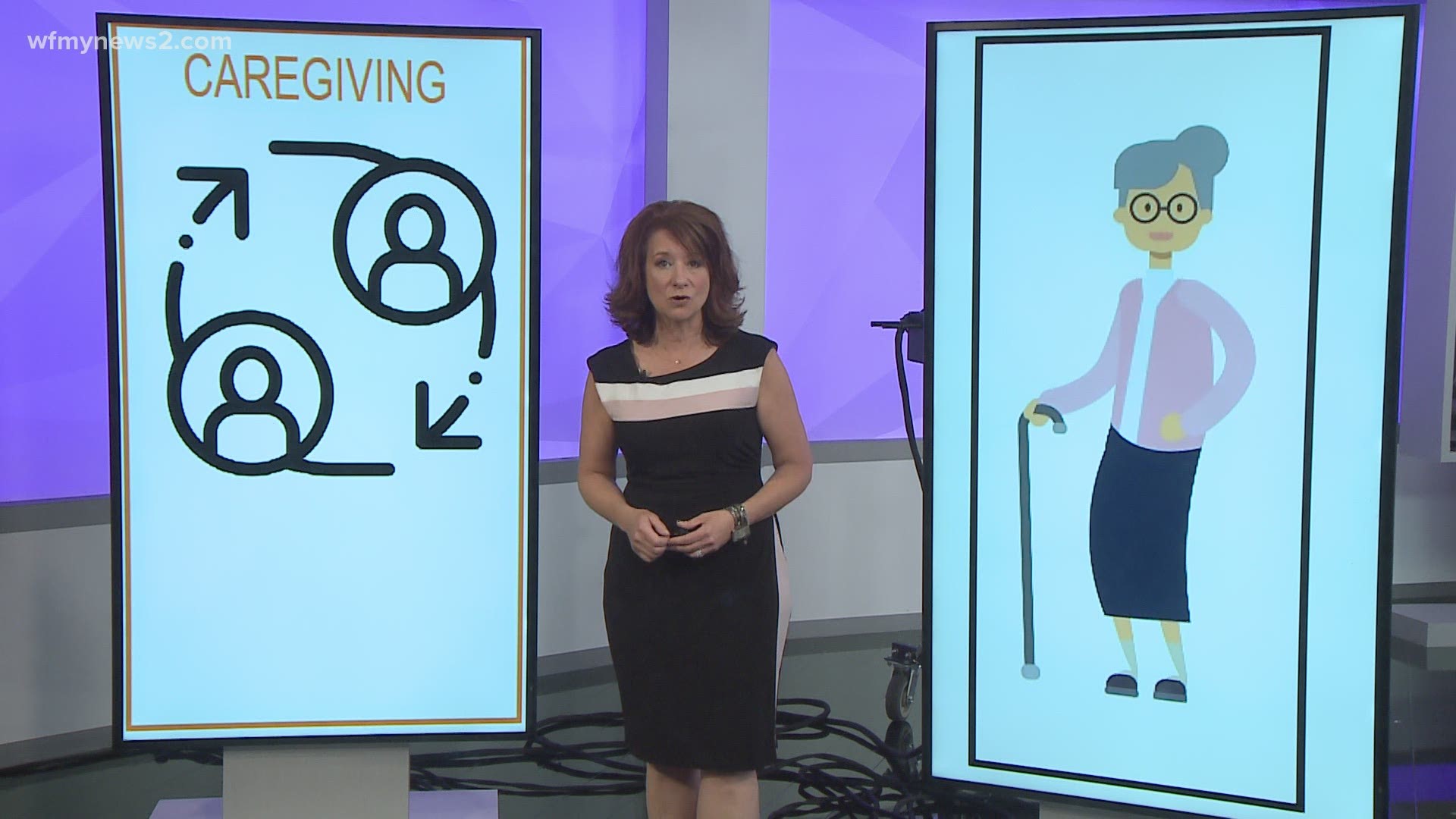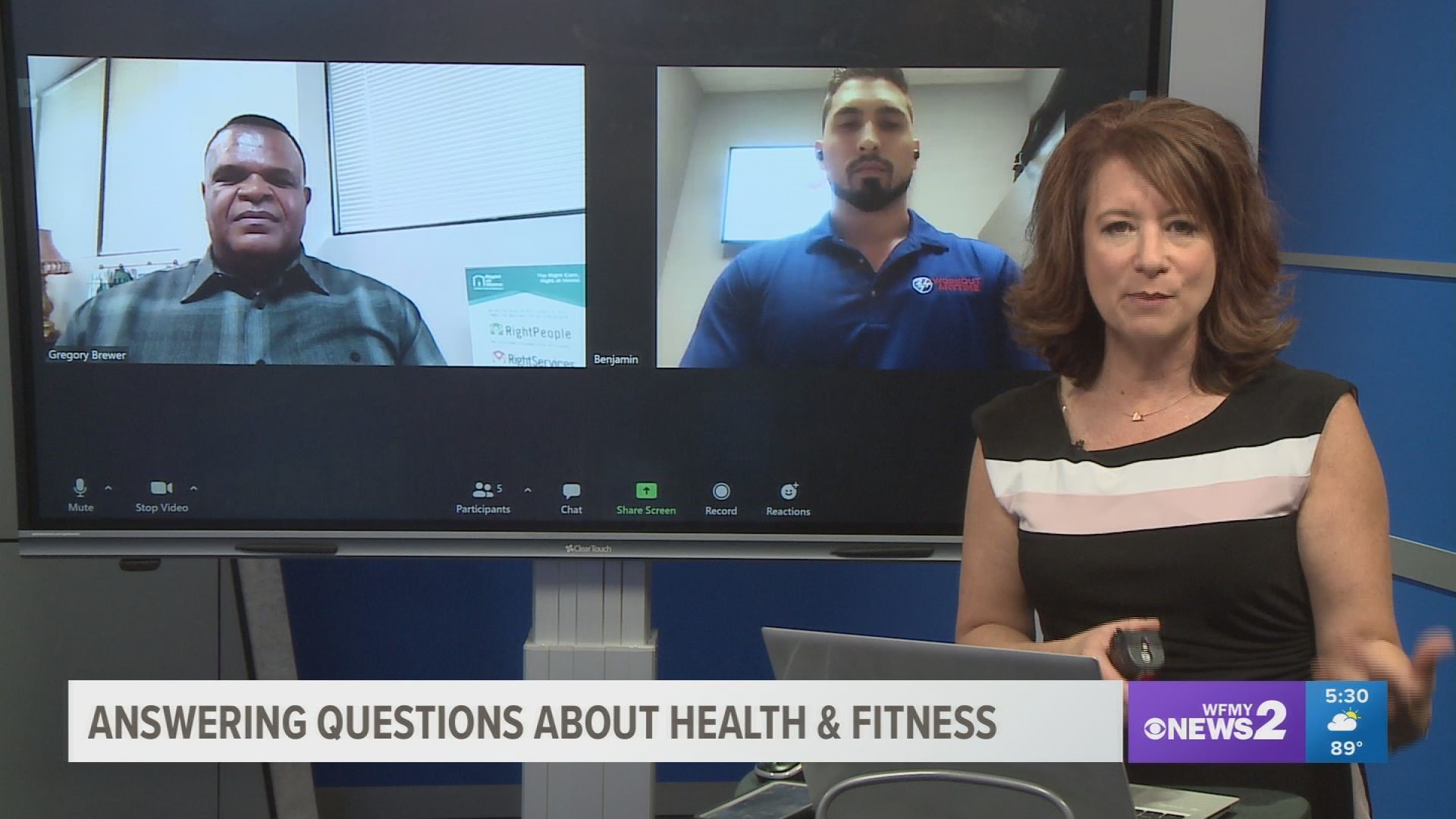GREENSBORO, N.C. — 40 million U-S adults take care of a loved one who is elderly or disabled.
On top of caring for those loved ones, there's work, children and other responsibilities to worry about.
May is Mental Health Awareness month and it's important to care for you and your loved one's mental and physical well being.
Greg Brewer, owner and President of "Right at Home in the Piedmont Triad Area" and Benjamin Ryan, Fitness Director of Greensboro Workout Anytime join us on 2 Wants to Know to answer your questions about staying active and healthy.
What are the signs that my senior loved one might have a mental health condition that should be addressed?
The changes can be gradual and subtle. A consultation with their doctor would be wise if your loved one is:
- Sleeping much more or much less than usual.
- Feeling unusually confused, on edge, worried or afraid.
- Exhibiting low or no energy.
- Eating much more or less than usual.
- Experiencing prolonged grief that does not subside.
- Losing interest in things they once enjoyed.
- Feeling helpless or hopeless.
- Smoking, drinking or using drugs more than usual.
- Expressing thoughts of suicide.
Can mental health disorders be treated?
Yes. Your loved one's doctor might recommend cognitive behavioral therapy, psychotherapy, interventions for substance misuse or other negative habits, and instruction about lifestyle changes that promote positive mental health. Geriatric mental health professionals also may prescribe medications, taking into account a patient's ability to manage medications, the other medications they take, and how their age affects the way their body processes substances.
What if my senior loved one resists seeking help?
Even older adults who are conscientious about healthcare might avoid seeking treatment for depression and anxiety. Fearing stigma, they might try to "go it alone," thinking that seeking help is a sign of weakness. Reassure your loved one that, on the contrary, it's a sign of strength to take charge in this way. Substance misuse, gambling, or other behavioral health problems may be especially hard to discuss. If possible, talk to your loved one's healthcare provider about options.
CAREGIVING AND AVOIDING BURNOUT with Debbie Greth of Seniors Helping Seniors.
How can a caregiver support the health and mental health of older adults?
- Coordinating care. Most senior patients see a number of healthcare providers, and they often have a complicated care routine to follow. Professional in-home caregivers help keep track of appointments, accompany clients to the doctor and pharmacy, and provide health reminders.
- A home environment that's conducive to good mental health. Professional caregivers help clients with bathing, dressing, grooming, meal preparation, and housekeeping. They provide companionship that wards off social isolation and loneliness and mental stimulation that lifts the spirits.
- Partnering with family. Family caregiver distress is greatly reduced when a family partners with professional caregivers. In-home caregivers keep the family up to date about their loved one's condition, even when the family lives at a distance- a situation that can be very distressing as a senior's needs change. The resulting peace of mind allows the family to focus on their jobs, their other responsibilities, and their own health.



